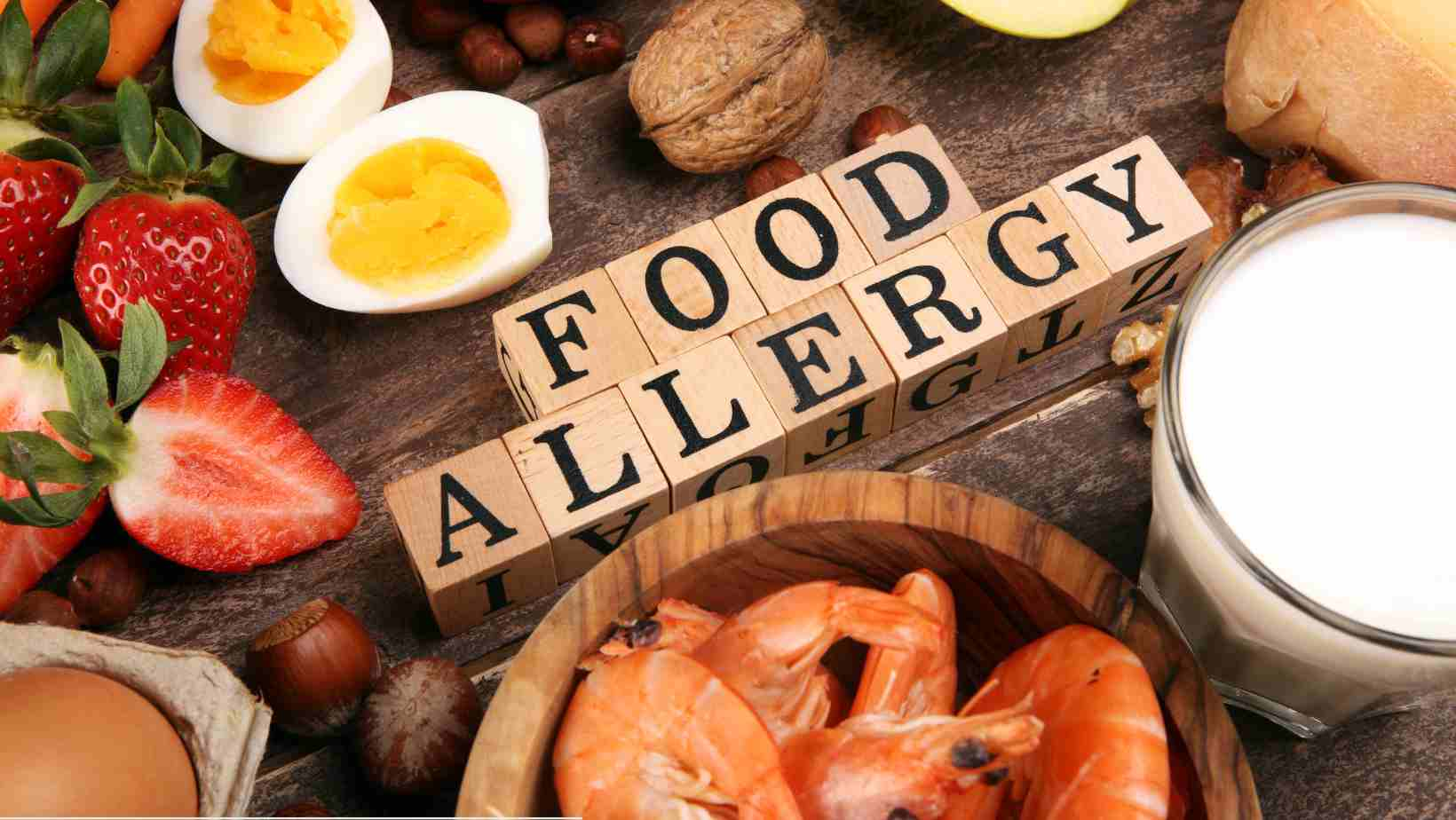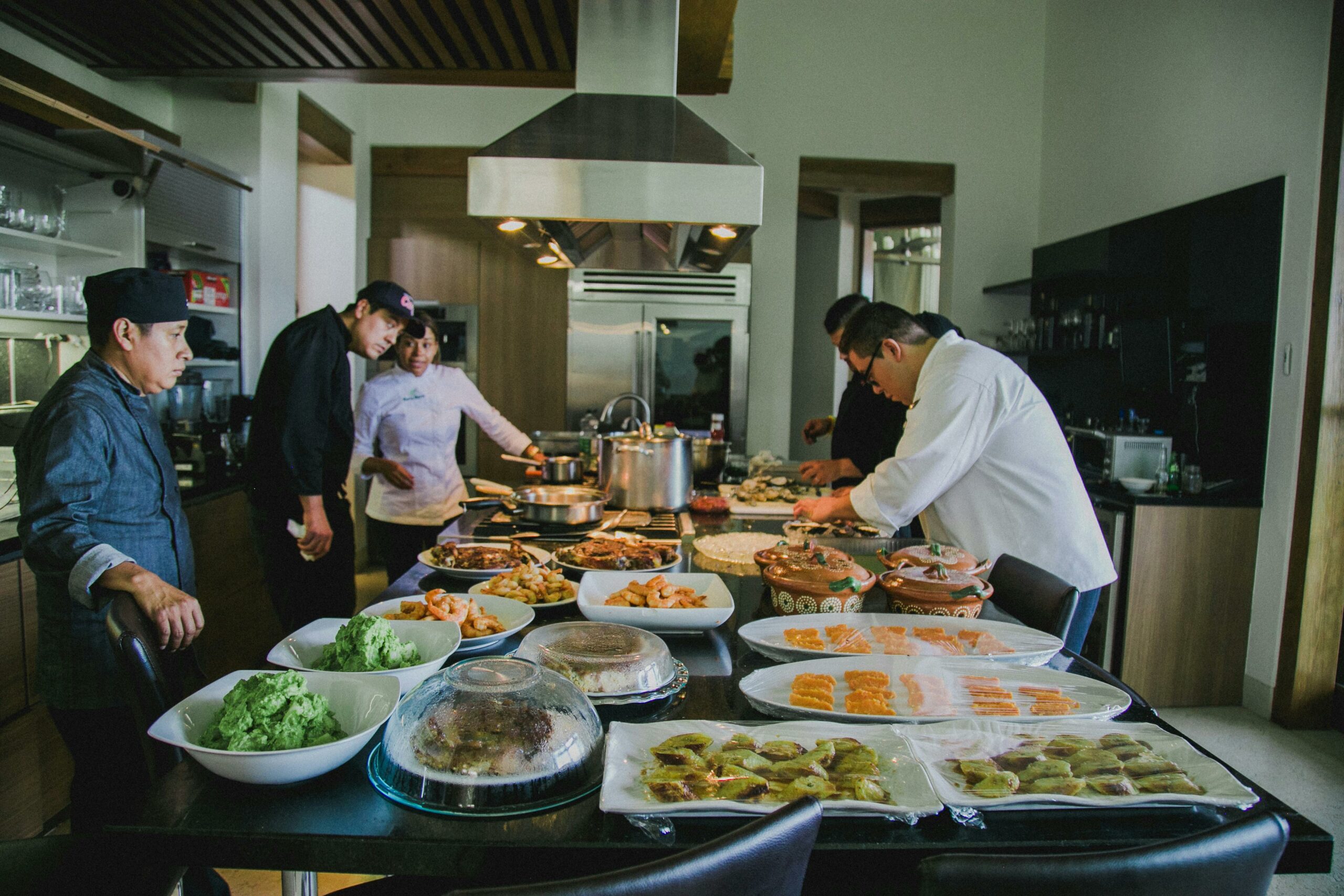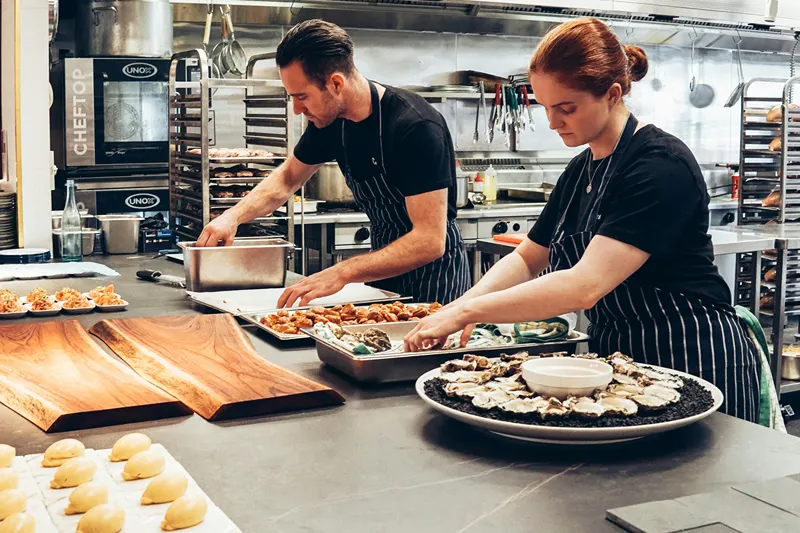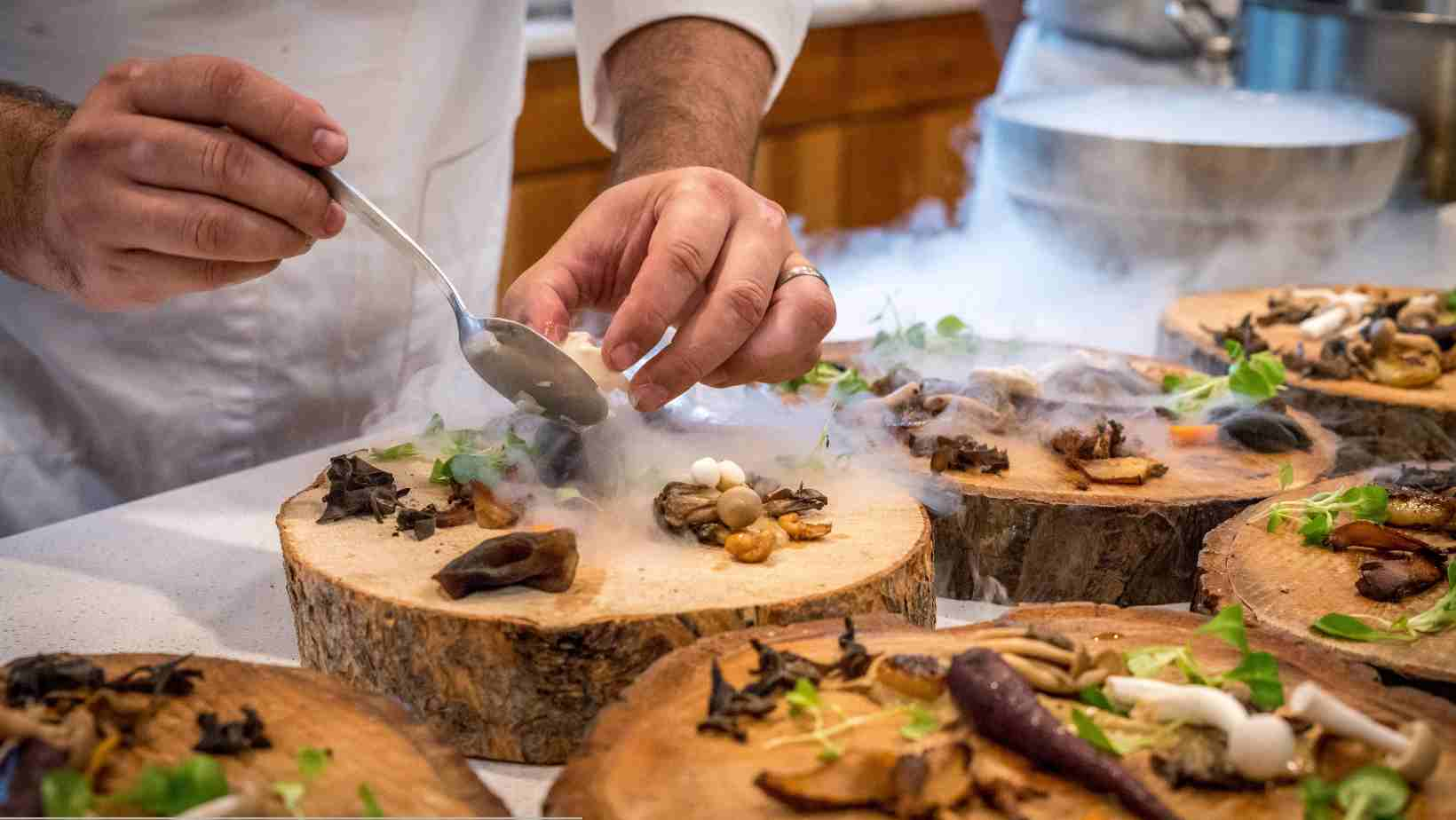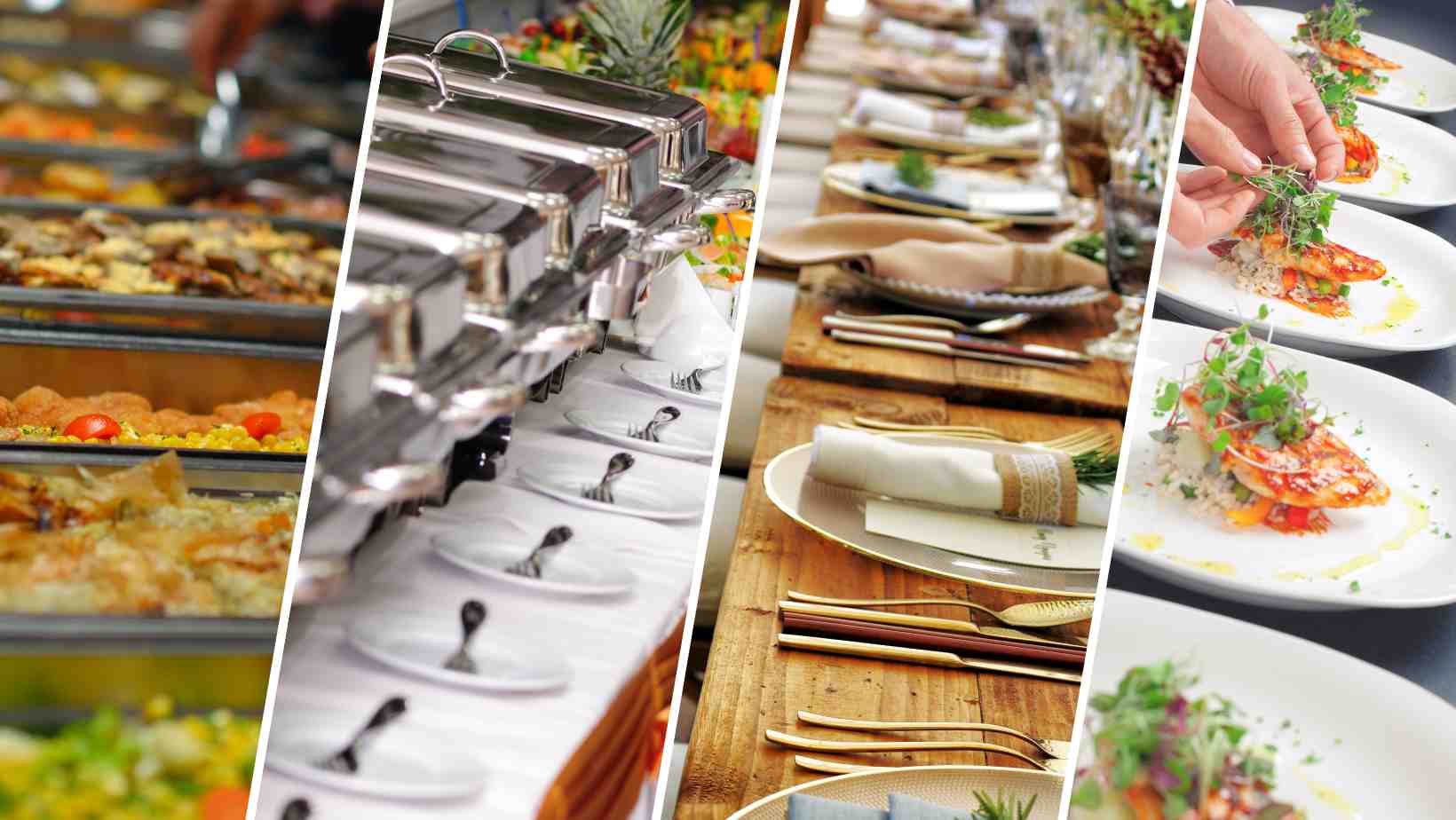How to Manage Common Allergens in Food as a UK Private Chef
How to Manage Different Types of Food Allergies and Intolerances as a Private Chef
By mastering the following skills, you’ll not only provide exceptional service but also gain the trust and confidence of your clients, knowing that their dietary needs are in expert hands.
1. Early Communication is Key

The number of people with food allergies and intolerances is steadily increasing, making early communication with your clients essential. Before planning any meal, it’s crucial to discuss their specific dietary restrictions. This early dialogue is your first line of defence against potential allergic reactions and sets the tone for a trusting chef-client relationship.
Start by asking about any known allergies, intolerances, or dietary preferences, such as gluten, dairy, or nuts. Offering a detailed dietary requirements questionnaire can help you gather this information systematically, ensuring no critical details are overlooked.
For example, if a client has a nut allergy, you can ensure all nut-containing ingredients are avoided, including oils or hidden ingredients in sauces. Discuss how you will prevent cross-contamination in their kitchen. This level of detail will help prevent allergic reactions and also demonstrate your commitment to their safety and comfort.
Platforms like yhangry make this process easier, as the guests are required to mention all dietary requirements while requesting a quote from a chef. Additionally, the platform
facilitates communication between chefs and clients early on, ensuring that all dietary needs are addressed well before confirming the event.
2. Mastering Ingredients and Allergen-Free Cooking
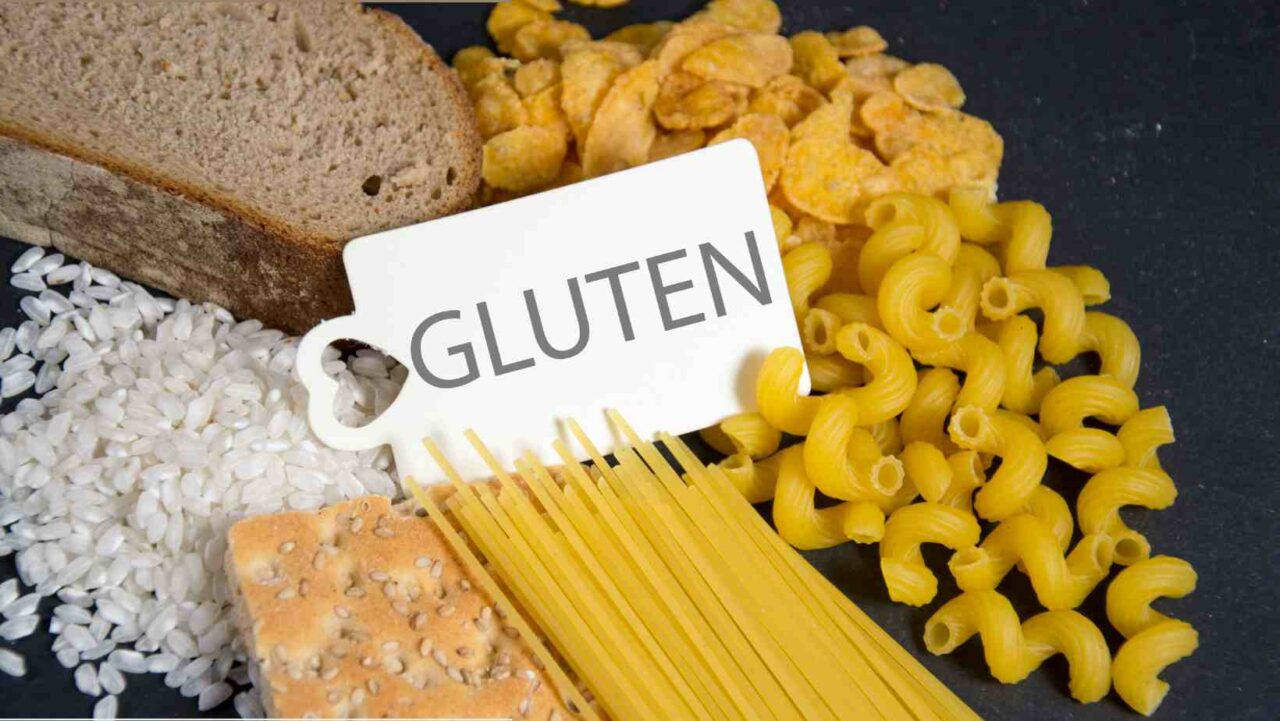
As a private chef, understanding what are common food allergens is crucial for creating safe meals. Knowing which ingredients are likely to cause allergic reactions is the first step in creating safe and satisfying meals for your clients. Learn about common allergens like nuts, dairy, gluten, soy and shellfish.
It’s important to familiarise yourself with alternative ingredients that can be used to replace these common allergens without compromising the flavour or quality of your dishes. For instance, almond milk or oat milk can substitute for dairy, while gluten-free flour can replace wheat flour. It’s also important to stay informed about hidden allergens in processed foods, which might require careful label reading and research.
This knowledge allows you to adapt recipes to meet your client’s needs without sacrificing taste.
3. Creativity in Menu Planning for Dietary Restrictions

Creating a menu for clients with dietary restrictions is an opportunity to showcase your creativity. While managing common allergens in food is about safety, menu planning is about delighting your clients with dishes that are both safe and exciting. This is where your skills as a chef truly shine. Take familiar recipes and adapt them to be allergen-free without losing any of the flavours that make them special.
Balancing flavours and textures becomes even more crucial when working with dietary restrictions. Experiment with alternative ingredients to ensure that each dish is as flavourful and satisfying as the original. For example, you can adapt a traditional dish like Caesar salad for a client with a fish allergy by replacing anchovies in the dressing with capers and a hint of seaweed. This will retain the umami flavour without risking an allergic reaction.
The goal is to create a dining experience that feels indulgent, where the absence of certain ingredients is not felt as a limitation but as an opportunity for innovation.
4. Transparency in Ingredient Disclosure
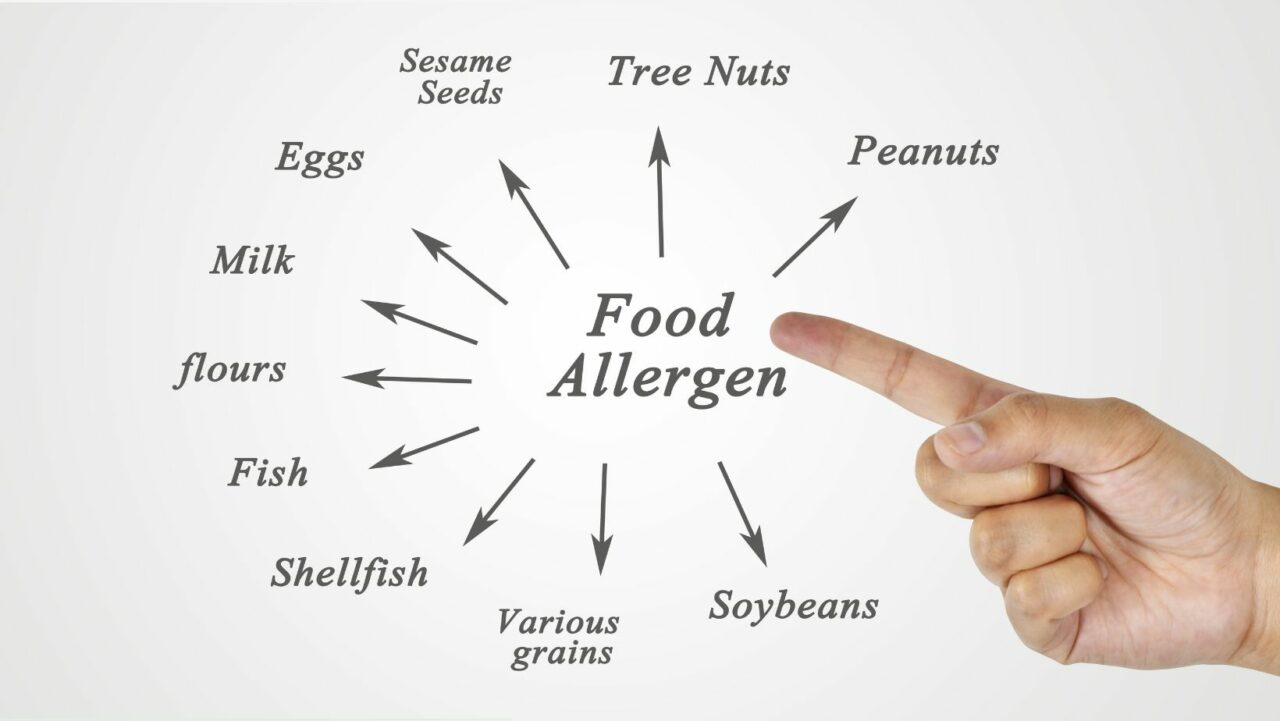
Being upfront about what goes into each dish is critical when managing the most common allergens in food. Clearly communicating the ingredients used in your dishes builds trust and ensures your clients can make informed choices.
If you’re using nutritional yeast to create a dairy-free cheese sauce, it is important to mention this to clients, since some people have intolerance towards processing yeast.
This transparency is not limited to just listing ingredients but also about being available to explain how dishes are prepared and what precautions are taken to avoid allergens. By providing clear and honest information, you prioritise the safety of your clients and reinforce your commitment to their well-being.
5. Effective Allergen Labelling on Menus
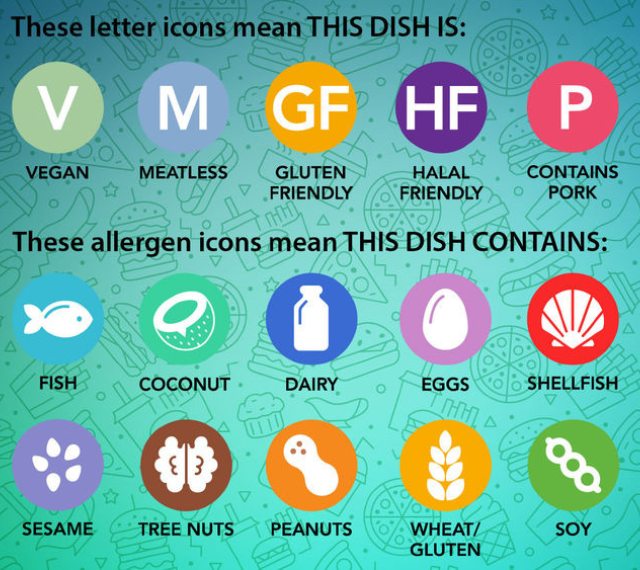
Once you’ve communicated the ingredients to your clients, the next step is to ensure that this information is clearly reflected on the menu. A well-labelled menu is a simple yet powerful tool for managing all types of food allergies and intolerances. Clearly indicating the presence of allergens helps clients quickly identify dishes that are safe for them to eat.
Consider using symbols or notes on your menu to clearly indicate which dishes contain specific allergens and which are allergen-free. By providing clear and consistent labelling, you help ensure that everyone can enjoy their meal with confidence and ease without needing to ask additional questions.
6. Prevent Cross Contamination of Food

Knowing how to prevent cross contamination in food is one of the most essential skills in managing food allergies, and it requires meticulous attention to detail in the kitchen. Following strict protocols, such as using separate utensils, cookware, and preparation areas for allergen-free dishes, is essential.
For instance, if you are preparing both a regular and gluten-free version of a dish, ensure that the gluten-free ingredients are prepared first and that separate cookware, utensils, and serving dishes are used.
Regularly cleaning surfaces and equipment to remove any traces of allergens further reduces the risk. By prioritising these safety measures, you ensure that your kitchen is a safe environment for preparing allergen-free meals, providing peace of mind for your clients.
7. Create a Enjoyable and Safe Dining Experience

Incorporating these practices into your culinary routine is crucial for any private chef managing clients with food allergies and intolerances. From transparent communication and effective labelling to preventing cross-contamination, each step is vital in creating a safe dining experience.
Whether you're hosting a special celebration dinner, looking for a chef during your holiday or weekly meal prep, we will match you to the perfect chefs.
Start hereEqually important are chef hygiene rules, which ensure that the kitchen remains a clean and safe environment. Adhering to strict hygiene standards reduces the risk of cross-contamination and contributes to the overall safety of the meals you prepare.
By mastering these skills, you not only protect your clients but also establish yourself as a trusted professional who delivers exceptional dining experiences. As food allergies become more prevalent, the ability to manage them effectively will be increasingly important for chefs committed to providing inclusive, high-quality service.
Simplify Your Business, Amplify Your Culinary Art
Starting a private chef business is both an exciting and challenging venture. While your culinary skills are the foundation, managing the logistics of running the business can be overwhelming. Finding clients, securing payments, and dealing with cancellations are just a few of the hurdles that can distract you from your passion for cooking.
However, platforms like yhangry can help alleviate these burdens by offering solutions tailored to private chefs. Yhangry provides free access to customer leads, ensures secure and prompt payments, and offers comprehensive insurance coverage.
This support allows you to focus on what truly matters—creating memorable culinary experiences for your clients. As you continue to refine your craft, yhangry’s resources and support can help elevate your private chef career, enabling you to build a thriving business with ease.
- What are the 14 allergens?
-
In the UK, the Food Information Regulations 2014 mandate that 14 specific allergens must be clearly identified on food labels and menus to protect consumers with food allergies. These 14 allergens are tree nuts, peanuts, milk, cereals containing gluten, eggs, mustard, soya, celery, fish, molluscs, crustaceans, lupin, sesame seeds, and sulphur dioxide/sulphites.
- What is Natasha’s law?
-
Natasha’s Law is a piece of legislation in the UK that came into effect on October 1, 2021. Under Natasha’s Law, food businesses must clearly label the ingredients on PPDS (pre-packaged foods for direct sale) foods with any of the 14 major allergens. The purpose of this law is to protect consumers with food allergies by ensuring they have all the information they need to make safe choices about the food they consume.
- How can I grow my brand as a private chef?
-
Building a strong personal brand is key to attracting more clients. Utilising tools like a personalised web page to showcase your work and client reviews can help. Some services like yhangry offer these branding tools as part of their package, helping you promote your services more effectively.
